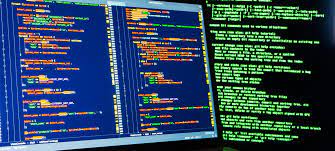The Role of an Application Software Engineer
Application software engineers are highly skilled professionals responsible for designing, developing, and maintaining software applications that meet specific user needs. They play a crucial role in the development and implementation of various types of software applications, ranging from mobile apps to enterprise-level systems.
One of the key responsibilities of an application software engineer is to analyze user requirements and design software solutions that address those needs effectively. This involves working closely with clients or end-users to understand their requirements, preferences, and constraints. Application software engineers must have strong problem-solving skills and the ability to think creatively to develop innovative solutions.
Once the requirements are gathered, application software engineers use programming languages such as Java, C++, Python, or JavaScript to write code and develop the software application. They must ensure that the code is efficient, maintainable, and scalable to accommodate future enhancements or changes.
Testing is another critical aspect of an application software engineer’s role. They are responsible for testing the software application thoroughly to identify and fix any bugs or issues before deployment. This involves conducting unit tests, integration tests, and system tests to ensure that the application functions as intended.
Furthermore, application software engineers are involved in maintaining and updating existing software applications. They work on debugging issues, implementing new features or enhancements, and ensuring that the software remains secure and up-to-date with the latest technologies.
In conclusion, application software engineers play a vital role in developing high-quality software applications that meet user needs effectively. Their expertise in analyzing requirements, designing solutions, writing code, testing applications, and maintaining software ensures that businesses can leverage technology to improve efficiency, productivity, and customer satisfaction.
Exploring the Role of Application Software Engineers: Responsibilities, Skills, and Practices
- What is an application software engineer?
- What are the key responsibilities of an application software engineer?
- What programming languages do application software engineers use?
- How do application software engineers gather user requirements?
- What is the role of testing in the work of an application software engineer?
- How do application software engineers ensure software security?
- What skills and qualifications are required to become an application software engineer?
What is an application software engineer?
An application software engineer is a skilled professional responsible for designing, developing, and maintaining software applications that cater to specific user needs. These engineers analyze user requirements, collaborate with clients or end-users to understand their needs, and then use programming languages like Java, C++, Python, or JavaScript to write code and create the software application. They are also involved in thorough testing to identify and resolve any bugs or issues before deployment, as well as in maintaining and updating existing applications to ensure they remain secure and up-to-date with the latest technologies. Overall, an application software engineer plays a crucial role in developing high-quality software solutions that effectively address user requirements.
What are the key responsibilities of an application software engineer?
One of the frequently asked questions about application software engineers is regarding their key responsibilities. Application software engineers are tasked with analyzing user requirements, designing software solutions, developing code using programming languages, testing applications for bugs and issues, and maintaining and updating software applications. They play a crucial role in ensuring that software applications meet user needs effectively, are reliable and efficient, and remain secure and up-to-date with the latest technologies. Overall, the key responsibilities of an application software engineer revolve around designing, developing, testing, and maintaining high-quality software applications that enhance user experiences and drive business success.
What programming languages do application software engineers use?
Application software engineers use a variety of programming languages to develop software applications that meet specific user needs. Some commonly used programming languages in this field include Java, C++, Python, JavaScript, and Ruby. Each programming language has its strengths and is chosen based on the requirements of the project, the platform on which the application will run, and the preferences of the development team. Application software engineers are proficient in multiple programming languages and often adapt to new languages as technology evolves to ensure they can create efficient and innovative software solutions.
How do application software engineers gather user requirements?
Application software engineers gather user requirements through a combination of techniques that involve direct communication with clients or end-users. They conduct interviews, surveys, and workshops to understand the needs, preferences, and constraints of the users. By actively listening to feedback and asking relevant questions, application software engineers can gain valuable insights into what features and functionalities the users expect from the software application. Additionally, they may also analyze existing systems or competitor products to identify potential gaps or areas for improvement. This collaborative approach ensures that the software solution is tailored to meet the specific requirements of the users effectively.
What is the role of testing in the work of an application software engineer?
Testing plays a crucial role in the work of an application software engineer. It is essential for ensuring that the software application functions as intended and meets user requirements. Application software engineers are responsible for conducting various types of testing, including unit tests, integration tests, and system tests, to identify and fix any bugs or issues in the code. Testing helps to validate the functionality, performance, and security of the software application before deployment, ensuring a high-quality end product that provides a seamless user experience. By thoroughly testing the software application, application software engineers can deliver reliable and robust solutions that meet industry standards and exceed user expectations.
How do application software engineers ensure software security?
Application software engineers ensure software security through various measures and practices. They implement secure coding techniques to prevent vulnerabilities and potential exploits in the software. This includes input validation, data encryption, and access control mechanisms to protect sensitive information. Additionally, application software engineers conduct regular security audits and testing to identify and address any security weaknesses in the software. They stay informed about the latest security threats and best practices to proactively mitigate risks and enhance the overall security posture of the software application.
What skills and qualifications are required to become an application software engineer?
To become an application software engineer, individuals need a strong foundation in computer science or a related field, typically obtained through a bachelor’s degree. In addition to formal education, essential skills for this role include proficiency in programming languages such as Java, C++, Python, or JavaScript. Problem-solving abilities, critical thinking skills, and attention to detail are also crucial for designing and developing software applications effectively. Strong communication skills are important for collaborating with team members and understanding user requirements. Continuous learning and staying updated on the latest technologies are key to thriving in this dynamic field.




